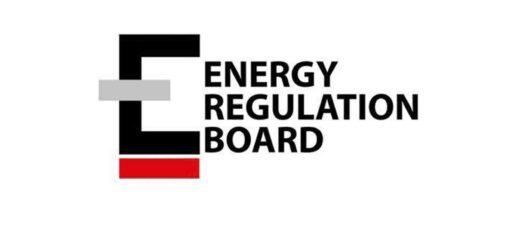ZCSA Handles Over 10 Cases of Sub-Standard Fertilizer Valued at K500, 000, Urges Farmers To Be Vigilant
In the past years, there has been a general upward trend in the percentage of farmers reporting using fertilizer, as well as the rate of application.
Fertilizer can be defined as a natural or artificial substance containing the chemical elements that improve growth and productiveness of crops. Fertilizers enhance the natural fertility of the soil or replace chemical elements taken from the soil by previous crops.
The top three fertilizers include; Nitrogen which helps produce green leaves and stems, Phosphorus which helps produce root development, and Potassium which helps the plant to withstand stress from heat or cold or in short (NPK).

According to ZambiaInvest, the average fertilizer use per hectare in the 2020/2021 agricultural season, increased to 125 Kg per hectare, from 102.55 Kg per hectare in the previous season across all smallholder farmers.
Research shows that nationally, about 63.4% of the smallholder households reported using fertilizer in the 2020/2021 agricultural season.
With the 2024/2025 farming season fast approaching, hopes are high among farmers for improved production in view of the crop failure recorded in the last season owing to drought.
Sadly, some unscrupulous people take advantage of the high demand for fertilizers during the farming season by supplying farmers with fake products, as some suppliers tend to mix fertilizer with impurities such as sand, thereby threatening the country’s food security.
Late last year, Zambia Police Service seized 310 by 50 kilograms bags of suspected counterfeit fertilizer from some unscrupulous people, after they unearthed a scam that certain individuals were manufacturing and supplying dubious looking fertiliser to unsuspecting farmers.
Fake fertilizer quickly finds its way into the black market because it is sold at very low prices and is readily available, but where sub-standard farming inputs are used, no matter how good the rains maybe, the harvest will be adversely affected.
As farmers begin to plan for the next agriculture season, Remnant Farmers Executive Director, Ruth Sibanda, is urging farmers to get the correct NPK labeled fertilizer, to indicate the nutrient content in terms of Nitrogen, Phosphorus and Potassium.
Ms. Sibanda however told Money FM News in an interview that farmers who are not on the Farmer Input Support (FISP) are always encouraged to use organic fertilizer to avoid the risk of buying the commodity from the black market or street vendors who mostly sale sub-standard products.
Meanwhile, Agriculture Expert Dr. Oliver Bulaya is calling on government to expedite the process of repealing the law against individuals who are involved in selling fake fertilizer, as farmers have for a long time been buying sub-standard farming inputs from the black market and some unscrupulous Agro dealers, a move which should not be allowed in the agriculture sector.
“Fake fertiliser negatively affects the production and productivity of the sector leading to low yields of the crops and small-scale farmers have failed to grow due to such trends.”
“This trend can be attributes to poverty and lack of capacity by small-scale farmers to afford quality seed and fertilizer,” Dr. Bulaya asserted.
In 2023, Zambia Compulsory Standards Agency (ZCSA) handled over 10 incidences of non-compliant fertilizer in Eastern, Copperbelt, Central, Lusaka and Northern Provinces of Zambia, valued at over K500, 000.
The Agency regulates chemical fertilizer by administering compulsory standards: ZS:327 Blended physical mixture Fertilizers, ZS:431 Compound Fertilizers, ZS: 605 Fertilizers – Urea: ZS 606 Fertilizers – Ammonia Nitrate: ZS 607 Fertilizers- Calcium Ammonia Nitrate and ZS: 608 Fertilizers- Ammonia Sulphate.
In response to a Press query sent by Money FM News, Agency Public Relations Officer, Onishias Maamba revealed that the non-compliant fertilizer mainly involved illegal repackaging and mixing of fertilizer with unknown substances with a view of deceiving consumers.
Mr. Maamba explained that some products were quarantined and samples were taken to competent laboratories for further analysis and results of the tests suggested that some bags were compromised by the alleged illegal mixing with unknown substances thereby making the product non-compliant with relevant compulsory standards.
“Prior to the 2023/2024 farming season, ZCSA noted an increase in cases of illegal repackaging and mixing of chemical fertilizer with unknown substances with a view of deceiving consumers.”
“ZCSA is warning traders against supplying chemical products that may harm consumers and the environment as the Agency will not hesitate to seize such products and prosecute the suppliers,” Mr. Maamba warned.
According to Mr. Maamba, ZCSA’s enforcement action includes seizing non-compliant chemical fertilizers, withdraw from the market and disposal for the purpose of public safety, health, consumer and environmental protection and in some cases, perpetrators may also face possible prosecution for the offense committed.
Currently, there are 61 products falling within the scope of compulsory standards and they are Lead Acid Batteries, poultry feed, pig feed, cattle feed, toilet soap, maize meal, refined edible vegetable oil, crude edible oil, clear beer, opaque beer, bottled water, fertilizers, white sugar, cement, peanut butter, electrical cables, plugs and socket outlets, among many others.
According to the Agency, a list of 52 new standards has already been proposed for declaration, to enhance consumer protection.








